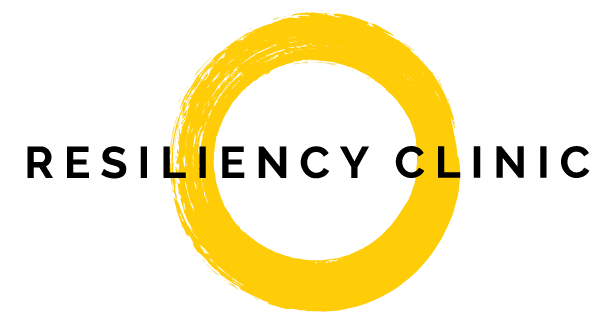La maternité commence bien avant l'arrivée du bébé. Elle commence au moment où vous commencez à faire de la place à la possibilité de la vie, que ce soit en essayant de concevoir, en naviguant dans la grossesse ou en vous préparant émotionnellement à un nouveau chapitre. Et bien qu'elle puisse être belle et affirmer la vie, elle peut aussi être source d'anxiété, de chagrin, de peur, d'isolement et de changements d'identité.
À la Clinique de résilience, nous croyons que la santé mentale de la mère est importante, non seulement pendant la période postnatale, mais aussi pendant toutes les saisons qui la précèdent. Nous offrons une thérapie en santé mentale maternelle à Ottawa, y compris un soutien pour l'anxiété et la dépression post-partum, les défis liés à la fertilité et les changements d'identité qui accompagnent le fait de devenir parent.
Qu'est-ce que la santé mentale maternelle ?
La santé mentale maternelle englobe le bien-être émotionnel et psychologique des individus pendant la grossesse et la période postnatale. Elle englobe toute une série d'expériences - des changements d'humeur temporaires comme le "baby blues" à des troubles plus graves tels que.. :
- Dépression du post-partum (DPP)
- Anxiété post-partum
- Troubles obsessionnels compulsifs (TOC) du post-partum
- Psychose du post-partum
- Traumatisme de la naissance et SSPT
Ces troubles peuvent toucher n'importe qui, quels que soient l'âge, la culture, les antécédents ou l'expérience parentale. Et elles sont bien plus courantes que la plupart des gens ne le pensent.
Selon la Collaboration canadienne en santé mentale périnatale, environ 1 sur 5 des nouvelles mères au Canada souffriront d'un trouble de l'humeur ou d'un trouble anxieux périnatal (TAMP). Pourtant, en raison de la stigmatisation, de la peur du jugement ou du manque de soutien, un grand nombre de ces troubles ne sont pas diagnostiqués ni traités. Même celles qui se sentent "bien" peuvent discrètement lutter contre des troubles du sommeil, des tensions relationnelles, des changements dans l'image corporelle et le débordement émotionnel lié à la préparation à un nouveau rôle.
Pourquoi est-elle si négligée ?
Les problèmes de santé mentale de la mère se cachent souvent à la vue de tous. Les nouvelles mamans peuvent être félicitées pour avoir "tout fait" alors qu'elles s'effondrent discrètement sous la pression. Les médias sociaux peuvent amplifier les sentiments d'inadéquation en présentant des images parfaites de la parentalité. Et culturellement, on s'attend souvent à ce qu'elles soient infiniment reconnaissantes, ce qui laisse peu de place pour parler du chagrin, de la perte d'identité, de la peur ou de la rage.
Si l'on ajoute à cela les changements hormonaux, l'épuisement physique, les changements d'identité et les hauts et bas émotionnels du début de la parentalité, il n'est pas étonnant que tant de mères aient l'impression de se noyer en silence.
A quoi ressemblent les symptômes ?
Il n'y a pas que la tristesse. Les problèmes de santé mentale de la mère peuvent se manifester de nombreuses façons :
- Sentiment de détachement par rapport à votre bébé
- Irritabilité ou colère intense
- Pensées obsédantes ou inquiétudes persistantes
- Culpabilité et honte, surtout lorsqu'il s'agit de "ne pas être assez".
- Difficultés de sommeil (au-delà de la perte de sommeil typique du nouveau-né)
- Pensées intrusives ou effrayantes que vous ne voulez pas avoir
- Sentiment d'engourdissement, de vide, ou l'impression de ne faire que subir les choses.
La vérité, c'est que la santé mentale de la mère n'est pas une faiblesse. Ce n'est pas un échec. Il s'agit d'un problème de santé qui mérite un soutien compatissant et fondé sur des données probantes.
Ce que vous pouvez faire (ou encourager les autres à faire)
Si vous ou l'un de vos proches êtes en difficulté, voici quelques mesures de soutien à prendre :
1. Tendre la main
Parlez à un prestataire de soins de santé de confiance, à un professionnel de la santé mentale ou à un groupe de soutien. De nombreux thérapeutes sont spécialisés dans les soins périnatals et postnatals.
2. Soyez honnête
Dites ce qui se passe. Dire "Je ne vais pas bien" peut être l'une des premières étapes les plus puissantes et les plus curatives.
3. Priorité au sommeil et à la nutrition
Cela semble simple, mais le sommeil et l'alimentation sont essentiels à l'humeur et à la capacité d'adaptation. Demandez de l'aide si vous le pouvez - le repos n'est pas un luxe, c'est un médicament.
4. Limiter la comparaison sociale
Mutez, unfollow, faites une pause. Ménagez votre espace en ligne pour protéger votre état mental.
5. Abandonner le mythe de la "mère parfaite
Il n'y a pas de "bonne" façon de materner. Se montrer avec amour et présence - même dans l'imperfection - est plus que suffisant.
Vous n'êtes pas seul
À toutes les mères qui ressentent des douleurs discrètes, des jours de brouillard ou des troubles intérieurs derrière les photos de bébé : vous n'êtes pas brisée et vous n'êtes pas seule. Votre santé mentale est importante, non seulement pour votre enfant, mais aussi pour les personnes suivantes vous. La maternité peut être belle et brutale, expansive et épuisante. Commençons à faire de la place pour tous de cela. Rendons hommage à la mère tout entière.

Rencontrer Jasmin - l'un de nos thérapeutes spécialisés dans le soutien aux parents dans la complexité de la vie familiale, qui leur offre des idées et des stratégies pour les aider à surmonter les difficultés.
La présence chaleureuse et accessible de Jasmine permet aux clients de se sentir vus, entendus et soutenus. Nous sommes très heureux qu'elle fasse partie de l'équipe de la notre équipe Résilience.
Thérapie pour la dépression et l'anxiété post-partum n'est pas seulement efficace, elle peut changer la vie. Nos thérapeutes respectueux des traumatismes aident les clients :
- Identifier et recadrer les pensées anxieuses ou intrusives
- Apprendre les outils de régulation du système nerveux
- Cultiver les limites, l'auto-compassion et l'identité personnelle
- Élaborer des plans de soutien et des stratégies d'adaptation
Soutien à la santé mentale en Ontario et à Ottawa
Si vous habitez à Ottawa ou dans les environs, vous n'êtes pas seule. Il existe d'excellentes ressources postnatales locales, basées à Ottawa, qui peuvent contribuer à votre bien-être mental, physique et émotionnel :
Classes locales et espaces communautaires
- Mothercraft Ottawa - Cours prénataux, soutien postnatal et développement de la petite enfance
- Association d'éducation à la naissance d'Ottawa (OCEA) - Cours de préparation à l'accouchement, de soins aux bébés, etc.
- Centre familial d'Ottawa - Groupes de parents et cercles de soutien
- Mama and Me Yoga (Divers studios) - De nombreux studios de yoga proposent des cours de yoga prénatal doux et des séances "maman et moi" pour aider à créer des liens, à s'étirer et à respirer pendant les transitions. Vous pouvez trouver des cours comme Où je m'épanouis et Maman en forme.
- Bloom Integrative Health - Que vous soyez enceinte, en convalescence post-partum, que vous gériez une maladie chronique ou que vous cherchiez simplement à améliorer votre état de santé général, nous sommes là pour vous aider à vous épanouir.
Réservez une séance à la Clinique de résilience - La clinique de santé mentale maternelle de confiance d'Ottawa
Nous offrons une thérapie pour la dépression post-partum, l'anxiété post-partum, le deuil de la fertilité, la perte de grossesse et les changements d'identité maternelle dans notre clinique d'Ottawa. Nos soins sont traumatismes, personnaliséet compatissant-enracinée dans votre résilience.
Réservez votre session aujourd'hui ou découvrez notre équipe de thérapeutes pour trouver la bonne solution.






